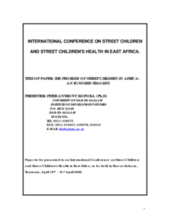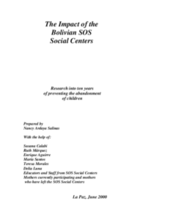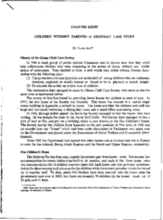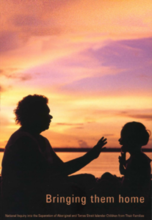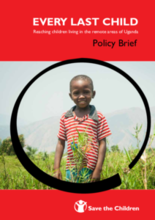Displaying 501 - 505 of 505
Examines initiatives taken to protect street children in Africa. Emphasis on increasing community and NGO participation in local responses.
Extensive report on the institutional- and family-level impacts of SOS Social Centers in Bolivia. Includes recommendations and lessons learned.
This chapter provides an overview of a child care institution, the Osu Children’s Home, in Ghana.
This report from Australia's Human Rights and Equal Opportunity Commission aimed to trace the past laws, practices and policies which resulted in the separation of Aboriginal and Torres Strait Islander children from their families by compulsion, duress or undue influence, and the effects of those laws, practices and policies.
This Policy Brief focuses on children living in the remote areas of Uganda and looks at the challenges these children face in attaining their rights to survival, learning and protection.

